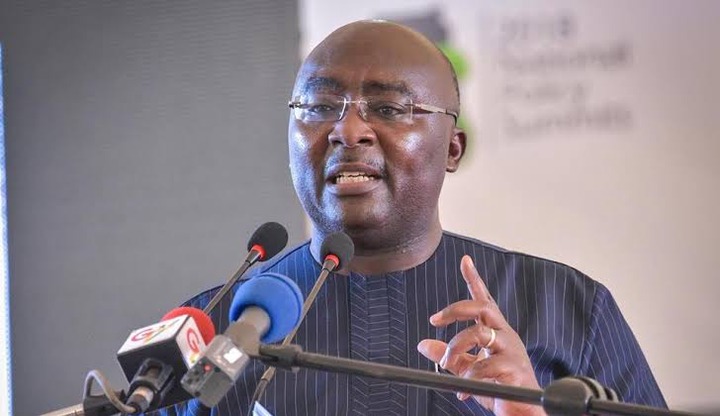
Aravind Srinivas is an Indian-American computer scientist, entrepreneur, and angel investor. He co-founded Perplexity AI in 2022 and serves as its CEO, where he designs search solutions leveraging AI. Aravind holds a PhD from UC Berkeley and has interned at Google, DeepMind, and OpenAI, focusing on AI and machine learning research.
His investments also extend to other AI startups, including ElevenLabs, Pika, and Suno. Aravind's research centers on advancing AI to enhance access to information, ensure correctness, and foster consumer trust in web search interactions. Early Life and Education Aravind was born in Chennai, India, on June 7, 1994.

Initially, he considered pursuing computer science at IIT Madras, but instead, he earned his Bachelor of Technology degree in Electrical Engineering. However, his fascination with artificial intelligence led him to study computer science subjects alongside his primary degree extensively. He graduated with a dual degree of B.
Tech and M.Tech from IIT Madras in 2017. Aravind later pursued his Ph.
D. in Computer Science at the University of California, Berkeley, completing it in 2021. Throughout his academic journey, he received various prestigious scholarships and conducted valuable research projects that showcased his academic excellence.
Professional Career Aravind co-founded Perplexity AI in August 2022, following his departure from OpenAI, where he contributed to the development of next-generation AI models and oversaw projects like DALL-E 2. Under his leadership, Perplexity AI has rapidly evolved to create a groundbreaking AI-powered chat-based search engine, leveraging large language models to provide accurate answers along with citations. The company has gained significant traction, securing over $100 million in funding from prominent investors and achieving breakeven revenue in a remarkably short period.
Aravind emphasizes the crucial role of user experience and transparency in shaping the future of AI-driven search technology Business Intervention in AI Perplexity AI , is forging partnerships with startups like Sarvam AI and platforms like Slack. With over 10 million users, the company is developing AI-driven solutions through strategic collaborations with hardware companies. AI investment: Aravind has invested $1 million and dedicated five hours weekly to sponsor an AI team in India.
His goal is to achieve an ISRO-like feat in AI, making open-source models available under the MIT license. AI partnerships: Perplexity AI is forging partnerships with startups like Sarvam AI and platforms like Slack. With over 10 million users, the company is developing AI-driven solutions through strategic collaborations with hardware companies.
AI Research and Advertisement: Aravind outlines Perplexity AI's AI-driven search and advertising strategy, distinguishing it from Google. He discusses growth plans, upcoming features, and the role of strategic collaborations in shaping the company's competitive edge. AI in Education: Perplexity AI provides complimentary Pro access to IIT Madras students and teachers, promoting learning and research.
This initiative, led by CEO Aravind, an IIT Madras alumnus, offers advanced AI-based search functionality to facilitate access to information and scholarly potential. AI Summit: At the AI Action Summit in Paris, co-chaired by PM Modi and President Macron, Perplexity AI CEO Aravind Srinivas met with Google CEO Sundar Pichai. Their meeting sparked speculation about a potential future partnership.
AI Funding: Perplexity AI raised $73.6 million in Series B funding from IVP, with investors including Jeff Bezos and Nvidia. Valued at $520 million, the company plans to scale operations, develop AI-powered search products, and expand its workforce.
Business and Financial Achievement Aravind has achieved remarkable financial success as the co-founder and CEO of Perplexity AI. Within just two years of its inception, the company attained a valuation of $1 billion, establishing itself as a formidable player in the AI-powered search engine market. His net worth stands at approximately ₹223.
8 crore, largely attributed to Perplexity's annual revenues of nearly $50 million. In addition to his success with Perplexity, Srinivas' interests in other business ventures have further contributed to his wealth. With ongoing funding rounds and a growing user base, his business success showcases a unique blend of innovation and strategic vision.
Aravind has achieved outstanding business success as the CEO and co-founder of Perplexity AI. Since its inception in 2022, the company has experienced rapid growth, securing over $100 million in funding from prominent investors, including Jeff Bezos and Susan Wojcicki. Within just two years, Perplexity AI reached a valuation of $1 billion and achieved revenue positivity, with millions of users joining each month.
Aravind’s visionary approach to developing an AI-driven search engine , delivering precise and citeable responses has positioned Perplexity as a formidable competitor to industry giants like Google, disrupting traditional online content retrieval methods. Controversies Aravind has been at the center of several controversies, including a public exchange with Elon Musk over USAID funding, a debate on AI model development , responses to plagiarism accusations, criticisms of bias in Wikipedia, and misconceptions about Indian founders. Challenge to Elon Musk: Aravind gained widespread attention after engaging with Elon Musk on X, urging him not to accept $500 billion in USAID funding.
This exchange followed President Trump's call to shut down the agency and a federal judge's temporary measure to halt the furlough of 2,200 USAID employees. Model Training Debate : Aravind disagreed with Nandan Nilekani's view that India should focus on practical AI applications rather than developing its own models. He emphasized the importance of training AI models in conjunction with application development, acknowledging Nilekani's achievements while challenging his perspective on model development.
Comment on Kanye West : The Perplexity AI CEO faced criticism for a comment on X, where he invited Kanye West to use Perplexity AI to verify his posts. The comment, which included a derogatory term, sparked controversy during West's return to the platform. Plagiarism Accusations: Aravind defended Perplexity AI against plagiarism and infringement accusations.
News reports raised concerns about the company's answer engine capabilities, questioning its ethics and practices surrounding content usage and originality. Wikipedia Bias Debate: He asserted that Wikipedia is biased and proposed creating an alternative platform and offered assistance in developing this alternative using Perplexity APIs, echoing Elon Musk's similar criticism of Wikipedia. Indian Founders Misunderstood: Aravind responded to a viral post claiming that Indians cannot launch successful AI startups.
He disproved this myth by citing his own success and questioned the validity of such claims. Content Theft Debate: While attending an event in 2024, Aravind addressed the company's content plagiarism scandal, stating that Perplexity AI does not plagiarize. Despite lawsuits from media giants like The New York Times and News Corp, he refused to be labeled a plagiarist.
The company's revenue-sharing business model and growing popularity have also complicated the legal proceedings..













